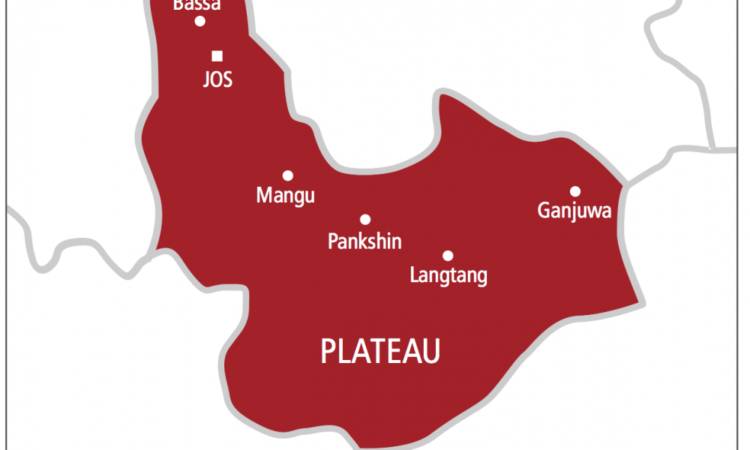Nigeria’s Dambe boxing goes global, kicks off in Abuja

The first strikes in Dambe are thrown sooner than the boxers even leave their home.
Warring parties don charms and amulets, dye their fist or even rating their arm with a razor, inserting dilapidated medication sooner than it scars over — all assured to offer protection to them within the ring or bring a knock-out punch.
Combined with prayers from “mallams”, or spiritual guides, they're unstoppable — no longer honest appropriate in Nigeria, but increasingly spherical the arena.
The Dambe World Sequence kicked off in Abuja, the capital, on Saturday in basically the most contemporary evolution of a sport that traces its roots relief centuries amongst west Africa’s Hausa speakers.
“As a change of looking out for to Westernise it, or as a change of looking out for to make it something else, for us the goal is to professionalise it,” acknowledged Maxwell Kalu, founding father of the West African Combating Championship, the community organising the match.
On the the same time, a key goal is also “opening the door in phrases of involving other folks to compete in Nigeria”.
Held on the bottom of the national stadium and broadcast by DAZN, a British sports streaming carrier, the match is a some distance yowl from the social tradition acknowledged to were organised by tenth-century Hausa butchers.
“This one is enormous, I’m very cushty,” acknowledged Abdullahi “Coronavirus” Ali, a 20-365 days-ancient who has been fighting since he was as soon as a teen. “The audience is increasing day-after-day.”
As Coronavirus — nicknamed so for his ferocious punches — spoke to AFP, two beginner warring parties worked the ring within the aid of him, in a pre-match exhibition match in Dei Dei, a working-class Abuja exurb.
Chickens pecked beneath the rickety wooden stands while cigarette smoke wafted above the crowd.
In Dambe, in lieu of a glove, the warring parties every possess one fist tightly sure in rope — their striking arm. The opposite hand reaches out, feeling the design between the opponents and procuring for something to preserve or parry sooner than the fighting arm whips ahead as if from a loaded spring.
Amid the blows, one fighter lost his stability and fell — a “abolish”. The spherical was as soon as over.
– Home, world expansion –
Dambe might per chance per chance well per chance possess as soon as gave the influence destined to be confined to the margins in areas fancy Dei Dei as Abuja’s elite paved over the leisure standing within the intention in which of contemporary skyscrapers and highways.
Slowly, the authorities has taken more passion in maintaining and promoting the game, as possess private groups fancy the WAFC.
With the creation of YouTube and Instagram, Dambe now attracts fans internationally, with one promoter telling BBC in 2017 that 60 p.c of his viewers were from exterior Nigeria. The game has also grown at home.
In 2018, a Dambe match within the southern city of Lagos drew in spectators irregular about their northern countrymen’s pastime — and angry to survey it in a handsome stadium.
Earlier this month, athletes from in the end of the continent descended on the megacity for the African Knockout Championship, a Western-style blended martial arts match.
But Kalu envisions the reverse: foreigners making their intention to survey a distinctively Nigerian intention of fighting.
Professionalisation also brings the choice to usher in safety protocols and stable salaries to the in any other case unregulated fight sport.
“If I win married, I won’t enable my formative years to complete it,” acknowledged Usman Abubakar, 20, his fist dyed a darkish henna colour and arm replete with charmed scars, recalling an damage to the chest that saw him sit down out for two years.
– Foreigners welcome –
Saturday’s warring parties will seemingly be competing to portray Nigeria in what is envisioned as a multi-stage, world sequence.
Closing 365 days, supported by the WAFC, British national Luke Leyland travelled from Liverpool to compete in a Dambe match — reportedly the first white fighter to ever cease so.
He was as soon as “destroyed”, in step with one local media document, although he wrote positively of the trip.
Nigerian warring parties live frigid on the foundation of sharing the spoils of victory.
Asked what would happen if non-Nigerians began competing, “Coronavirus”, Abubakar and a Third fighter, Anas Hamisu, were all angry on the prospect of more other folks embracing their sport.
But as well they all shared the the same prediction: the Nigerians would grasp.









![[In Pictures] Federation Cup win: AbdulRazaq hosts Kwara United players, doles out cash, land gifts](https://cdn.guardian.ng/wp-content/uploads/2025/07/IMG-20250701-WA0056.jpg?#)













